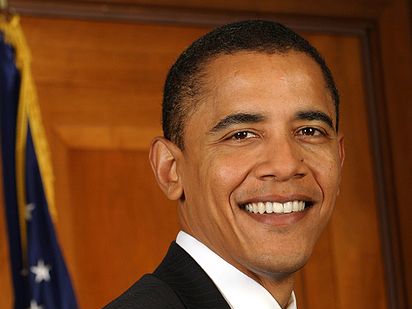Barack Obama can hold his audience spellbound, so what can the rest of us mere mortals learn from him about his magnetic speaking style? Martin Shovel looks at what makes Obama's presentations so successful, and says it's possible to spread a little of his magic.
If there is one supreme gift that marks out truly great speakers from the rest, it’s an unerring ability to make us care about what they’re saying, whatever the topic. Up to now, Barack Obama’s greatest achievement has been to make the people of America care about politics. Armed only with words, he has miraculously transformed the vast desert of political disaffection into a fertile plain where the litter of broken dreams has been replaced by seeds of hope.
Obama’s words have cast their spell in a series of stirring campaign speeches; speeches that have excited and inspired people around the globe. But what is it that makes these so speeches special? And is it possible to begin to understand how they work their magic?
The power of a good speech
A key figure in Obama’s success is his 27 year-old head speechwriter, Jon Favreau. When Obama interviewed Favreau for the post he asked the young man whether he had a theory about speechwriting. Favreau is said to have clinched the job by answering that he believed a good speech can broaden the circle of people who care about politics. It can say "I hear you", to the average person who's been made cynical by having been so let down by politics, and politicians, in the past. A good speech can say "just give me a chance, and we can move in the right direction."
The success of Obama and Favreau’s writing relationship is built on a fundamental principle of good communication: if you want an audience to pay attention, you have to begin by getting them to care about what you’re saying. When stated as starkly as this it seems blindingly obvious, but it’s remarkable how many of us fall at this first hurdle of getting through to an audience. You might be the most gifted of chefs and have one of the finest restaurants in the world, but if you can’t find a way of tempting diners over your threshold, you may as well hang up your ladle and stick a ‘for sale’ sign in your window.
So how does Obama do it?
The moment of revelation for Favreau was watching Obama speak to the Democratic National Convention in 2004. In that speech, Obama showed how the right story – in this instance, the story of his life – told well, could become a story capable of embracing and weaving together all the multifarious stories of the people in his audience because it was a story that was part of the larger American story: the story of the American Dream. There was Obama, a black man, the son of a Kenyan villager who had grown up herding goats, addressing the Democratic National Convention. His African father may have gone to a small village school in a tin-roof shack, but the America Dream had made it possible for his son, Barack, to graduate from Harvard Law School and become a United States Senator.
Obama is a master of classical rhetorical devices but Favreau noted that in this particular speech applause wasn’t triggered by the self-conscious deployment of 'claptraps' - rhetorical devices that invite applause, like Tony Blair’s three-part mantra ‘education, education, education’. Instead, Obama’s audience applauded enthusiastically simply because his words touched something in them, in the Democratic Party and in the country, that other politicans were incapable of reaching.
Squaring the circle
In the speech Obama cleverly squares the circle of rugged American individualism and social responsibility. He says “…it's not enough for just some of us to prosper. For alongside our famous individualism, there's another ingredient in the American saga, a belief that we are all connected as one people. If there's a child on the south side of Chicago who can't read, that matters to me, even if it's not my child. If there's a senior citizen …who can't pay for their prescription … that makes my life poorer, even if it's not my grandparent. If there's an Arab-American family being rounded up without benefit of an attorney or due process, that threatens my civil liberties. It is that fundamental belief – I am my brother's keeper, I am my sisters' keeper – that makes this country work."
Out of two iconic, but distinctly contradictory, American stories, Obama skilfully forges a single overarching story that manages to unify his audience and the nation, and make them care about each other and their shared future. A speech, or presentation, that doesn’t begin with an appeal to our emotions – that doesn’t make us care – will struggle to grab our attention. Having heard someone speak, as time passes, you may find it hard to remember what they said – but even after the passage of many years, you're unlikely to forget how they made you feel.
Martin Shovel specialises in helping people become engaging, persuasive and inspiring speakers and presenters. Discover more by visiting www.creativityworks.net
To read more features written by Martin click on the title below:
Mehrabian Nights: An informative tale about (mis)communication
Free thinking: Memories are made of this
Free thinking: Winning hearts & minds
Free thinking: Music to your ears
Free thinking: Why understanding how you think can help you think better
Free thinking: How to become a charismatic speaker
Free thinking: Out of the mouths of babes
Free thinking: Purposeful presentations










